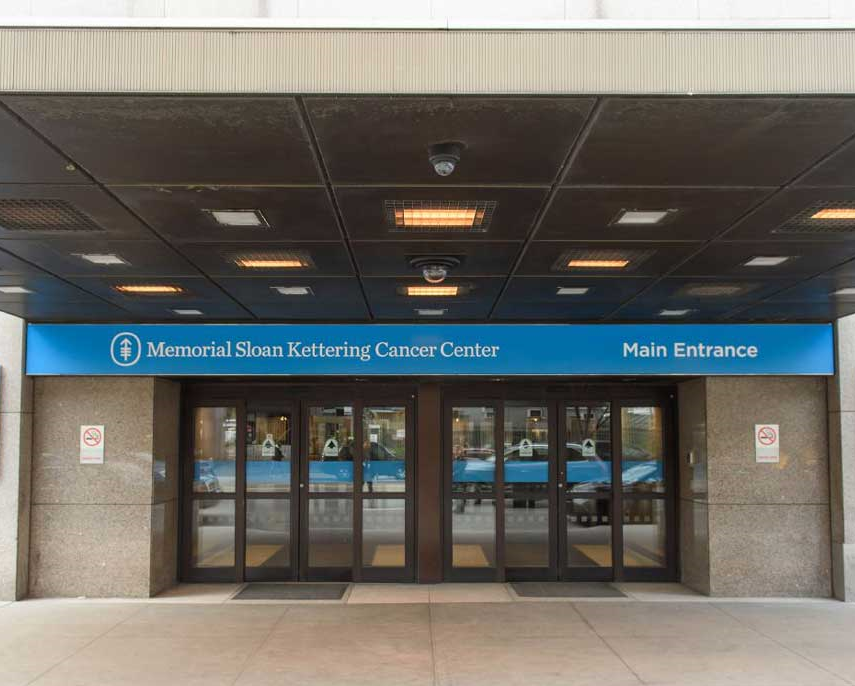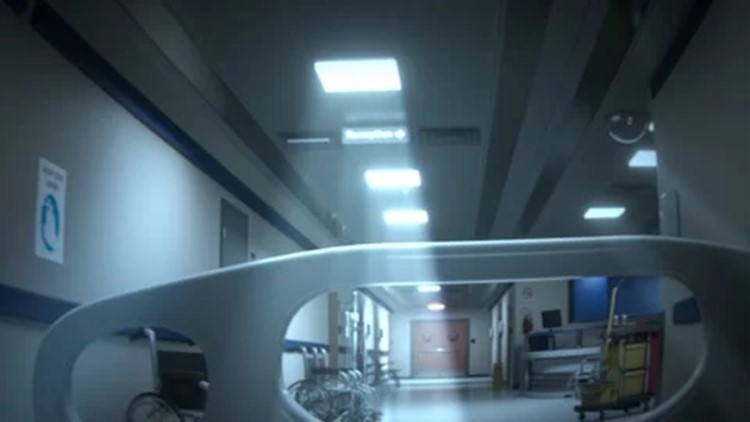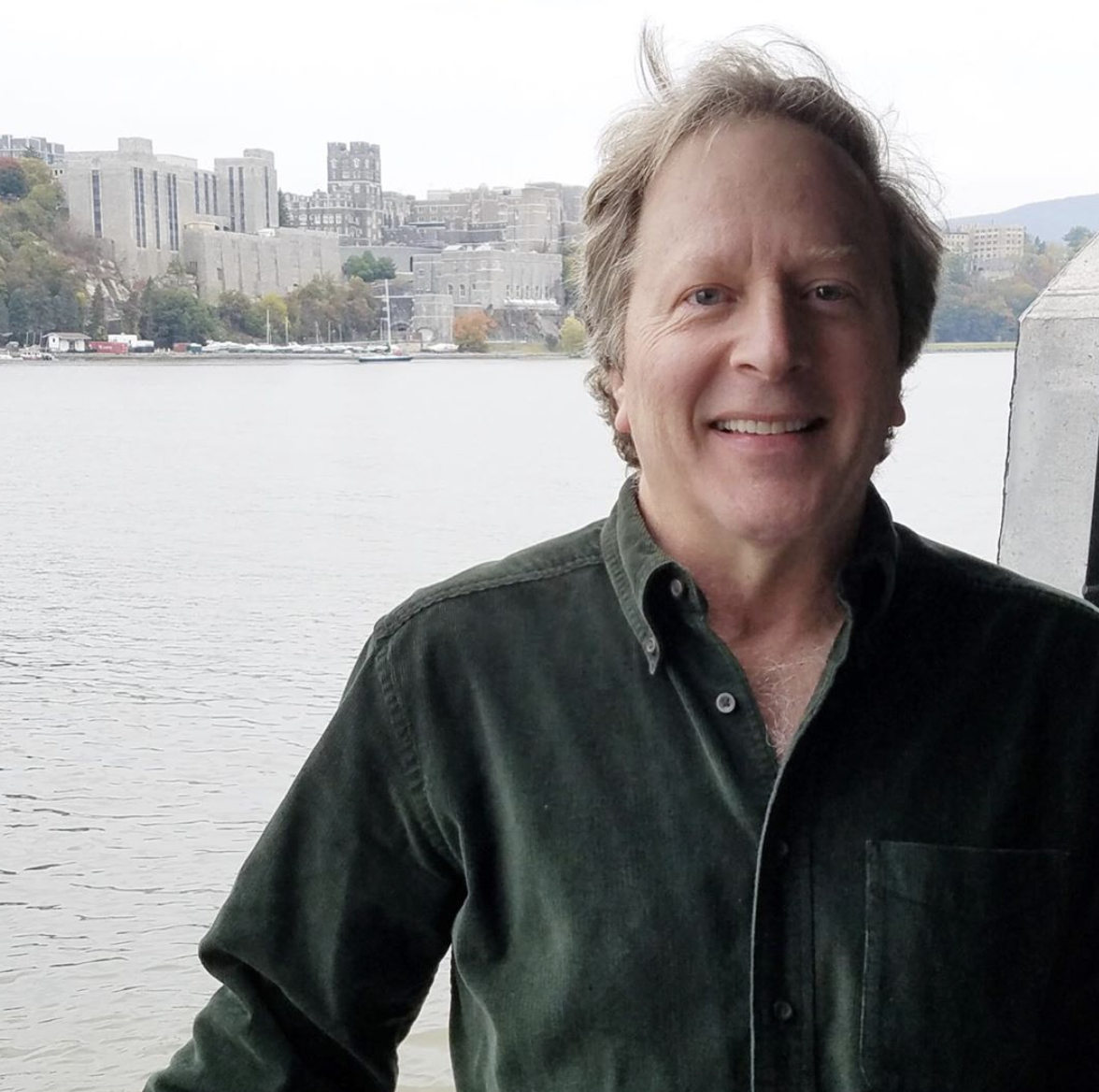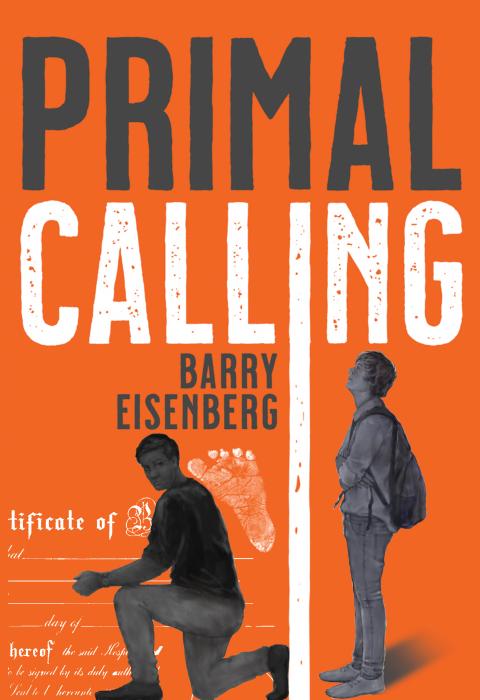“The Scariest Thing That Happened Was Not What I Expected”
I was sure the top three responses would be having surgery, starting chemo, and getting a confirmed diagnosis. But those were not the answers to the question I posed to the focus group I was leading, “What was the scariest thing that happened to you at the hospital?”
The nine people seated in a circle around me were former patients at Memorial Sloan-Kettering Cancer Center (MSK), where I worked many years ago. After a slight pause and some nervous fidgeting, a woman sitting directly across from me raised her hand and tentatively said, “I’ll start.”
As we all turned to her, she began with, “The scariest thing that happened was not what I expected.”
Eve (all names have been changed) spoke softly as she recounted what brought her to MSK. Preliminary tests revealed a small tumor on her left lung. A follow up biopsy confirmed stage two cancer. Eve’s oncologist referred her to MSK for surgery.
“I had to be at the hospital at seven in the morning. We live in New Jersey, about an hour away, but left at five because we were concerned about traffic and finding a place to park. My husband Al was driving and when we left the house it was dark. By the time we got into Manhattan it was light, just after dawn. I remember thinking, hoping really, maybe this will represent my life, you know, going from dark to light.
As we neared the hospital, Al asked if he should drop me off there while he looked for a place to park. I said ‘no.’ Part of it is that I didn’t want to be by myself. But Al’s been a wreck about all this. He tries hard not to show it, but he’s not very good at hiding his feelings. So I didn’t want him to be alone either.
We found a parking garage about a block from the hospital. As we were walking, the reality was setting in that my life was in the hands of the people in that building.
A minute later, there we were, at the entrance to the hospital.
I looked up and froze.”
Everyone in the circle was riveted. Eve was describing her morning as if she was reliving it. There was something about recollecting the tiniest of details that resonated with each person. It was as though the smallest aspect was the most momentous. The others, their eyes wide with anticipation, were hanging on every word, very likely visualizing through Eve’s story their own experience with the counterintuitive proposition that on a day of existential consequence it was the ostensibly least consequential moments that were teeming with impact.
“I remember that exact second more than anything. Because there, above the door, was the name of the hospital. And it had the word ‘cancer’ in it.
That word was staring at me, making it crystal clear why I was there. No euphemisms, no pulling punches, just that word, cancer, in big letters.
I was petrified, even more than when they first told me I was sick, as crazy as that sounds. I tried to catch my breath. Al asked if I was ok. I nodded without saying anything about the sign. I didn’t want to let him know how terrified that sign made me feel. He’d have a hard time handling that.
Up till then, I thought the scariest thing was that I needed surgery. But it wasn’t. The scariest thing was walking into a building that had the word ‘cancer’ in big, bold letters framing the doorway.”
Everyone in the circle knew exactly what Eve meant. There were a few seconds of silence, a bit of mental regrouping. Eve’s experience brought them back to their own moments that have stayed with them, moments that on their surface might seem trivial relative to the health issue that brought them to MSK, which for some involved their very mortality. But as our session continued, it was those unanticipated, seemingly immaterial instances that had penetrated their psyche, lodging there and shaping the emotional relationship they had with their illness.
James asked if he could go next. “I can’t believe I’m going to tell you this, but the scariest thing was the toilet seat.”
A round of soft, polite laughter ensued. Though it eased the tension, everyone knew there would be something quite sobering about James’ story.
James was admitted to MSK to begin treatment for non-Hodgkin lymphoma. James, sandy-haired, appeared to be about 40. He had an athletic build, the look of someone who pays attention to his health. And now here he was, a person diagnosed with cancer, fearing that all his cherished life plans, especially seeing his young daughters grow up and start lives of their own, were abruptly upended.
James described how a pleasant patient-escort took him up to his room in a wheelchair after he completed the admissions process. A nurse greeted him with a smile as he passed the nurses’ station. He settled into his room and then headed into the bathroom to unpack his toiletries.
“As I walked into the bathroom and turned on the light, I immediately noticed a small purplish-brown dot on the toilet seat. It was so small, like maybe an eighth of an inch. But it jumped out at me, like a neon sign. I thought it was probably feces from the patient who was in the room before me.
I didn’t know what to do. I was afraid to say anything to the nurses because I didn’t want to come across as a complainer. So, I thought I’d just clean it myself. I turned on the hot water and waited until it got as hot as possible, then I wet some toilet paper.
As I reached down to clean it, I had this horrible thought. If they don’t do a good job cleaning a bathroom, how can I be sure that the doctors and nurses know what they are doing? That’s why that was the scariest thing that happened to me.”
Bernice offered to share her story next. Admitted to MSK for surgery for bile duct cancer, Bernice described how, at first, she was baffled by the diagnosis. As a Black woman with three relatives who had Sickle Cell Anemia, she was always more than a little afraid that the dreaded disease would come her way. When she started losing weight and noticed some discoloration in her stool as well as some yellowing in her eyes, she was sure it was Sickle Cell. But after some testing, Sickle Cell was ruled out. There were multiple referrals to different specialists, and after a few weeks they zeroed in on the bile duct diagnosis.
“On the morning of surgery, my nurse, Alice, came into my room and said it was almost time to go to the OR. Thank God for Alice. I loved her. Our granddaughters were the same age, so we had bonded over that and had lots to talk about. She could be as busy as could be, but she always had a few minutes for me.
Right behind her, a young man pushed a gurney into the room and up against my bed. My first thought was that the man was so mysterious. His mask covered his face up to his glasses and right above that was the haircap. All you could see were his glasses.
The two of them helped me slide onto the gurney. I had never been on one before. As soon as I was on it, lying flat on my back, the young man, who introduced himself only as a patient-escort, lifted the siderails. There was a loud clink as he locked them in place, making me feel like there was no going back. I thought I had come to terms with my disease and the surgery, but that sound from the guardrails startled me. I suddenly felt I had no control over my life, my destiny.
Then Alice took my hand and said I would do great. For a minute, I thought what if those were the last words I would ever hear.
Next, the escort went to the head of the gurney and started pushing. All I could see was the ceiling. For the first maybe 10 or 15 seconds, I had my bearings because we were close to my room, and I could tell we were passing the nurses’ station. But just a second later I had no idea where I was.
All I could do was stare straight up. It felt like I was in a tunnel. Every few feet we passed under a tube of fluorescent light. One after the other, bright but not blinding.
Then, pow! This shocking thought raced into my mind. It was that near death sensation that people report having, you know, that you are entering a tunnel heading toward a white light. And here I was headed for surgery, traveling through this tunnel of bright light, like it was drawing me deeper and deeper in. It was an awful thing to think, and I couldn’t shake it.
I was afraid to move, to breathe. I didn’t know if I should close my eyes or keep them open. Nothing worked. I could feel my chest tightening.
That ride on the gurney, heading into the light, was the scariest thing that happened to me.”
The other people in the focus group had stories about events that were similarly fixed in their memory, all linked by their seeming unrelatedness to the medical care they were at MSK to receive.
Glen described how wearing a diaper for the first time since he was toddler, 50 years ago, prompted him to feel as though his life would never be the same. He said the diaper was a dividing line in his life: “Before Cancer and After Cancer.”
For Audrey, the scariest thing was when the doctor came in to talk to her after surgery. After greeting Audrey, she sat in the chair across from the bed and looked at the chart before explaining the outcome. It was only a few seconds, but it was the scariest few seconds of her life.
I asked the group to talk about what followed each of those moments and I turned to Eve to begin.
“As soon as we walked into the building, a guard asked if I was a patient. I know it seems like such a small thing, but he smiled as he pointed toward the admitting office, just down the hall. There are times in your life when you need a friendly face, and wow, that was one of them.
I still remember the doors to the admitting office. They were big and heavy looking, but easy to open. I think I remember seeing a sign saying they were donated.
As soon as Al and I walked in, the nicest young woman shook our hands and walked us over to her desk. She said her name was Lucy and that she would register me. She must see hundreds of patients every week, but she made me feel like I was the only one. And when Lucy said that everyone who works here really cares about their patients, I instantly felt so much better. It was like I could breathe again.
When I left the hospital a few days later, I asked Al to turn the wheelchair so I could look at the sign above the entrance. I was surprised to discover I wasn’t afraid of it anymore. In fact, I actually came to appreciate that it said cancer. It was honest, straightforward. It says exactly why they are there. They put it right out there, like they’re proud of who they are. It gave me confidence. What more can you ask for than the best quality care and kindness?”
Another patient asked James if he really cleaned the toilet seat.
“It was the craziest thing. I tried, but the spot wouldn’t come off. I was wrestling with all these horrible thoughts, like maybe it was some medication that dripped onto the toilet seat and stained it. I just wanted to leave, to run out of there. I was scared about being sick and totally freaking out that I was not in a clean place.
A minute later, the nurse who smiled at me came in and asked how I was doing. Her name was Marci. She must have seen that I looked a mess, so she sat on the chair across from the bed, where I was sitting, and encouraged me to tell her what was on my mind.
I was nervous about showing Marci the toilet. I kept thinking that I was going to be at their mercy for the next few days and didn’t want to annoy them with small stuff. If I did, I worried what if I really need something and rang the call bell, will they come?”
I looked around the circle. The eight other people were of different ages and backgrounds and had different diagnoses. And yet, the look in their eyes was identical. They understood exactly what James was going through, that uneasy interplay of apprehension and loss of control, of the need for reassurance and uncertainty about whether it would be forthcoming.
“But Marci seemed genuinely interested in how I was feeling, so I said, ‘Let me show you what I found.’ I led her into the bathroom and pointed to the toilet seat.
I remember her reaction so vividly because I was expecting her to say, ‘Oh, that’s not such a problem, I’ll clean it for you,’ and instead she said, ‘I am so sorry about this. That is totally unacceptable. I’m going to get an Environmental Services manager up here, and if they can’t help right away, I will see about changing your room.’
I could feel the anxiety begin to drain out of my body. Five minutes earlier I felt so alone, and now I had someone in my corner. Wow! Was I grateful! I wasn’t sure if I could be honest, but that all changed because Marci really cared.
I explained to Marci that I tried to clean the stain and it wouldn’t come off, so maybe the person from Environmental Services could help.
Then Marci told me that I wasn’t there to clean rooms, but to take care of my health. And that I should never hesitate to tell her or any of the staff about any problem, ever. I started to feel better, like I was in the right place.
A few minutes later, the manager came into the room. She said she heard about the problem and said how sorry she was. We went into the bathroom. She took a close look and said that the spot on the toilet seat was not a stain, but a scratch, and that was the color of the molded plastic just under the white exterior laminate. She assured me that it was fully sanitized, explaining the very thorough cleaning process each room undergoes before a new patient enters.
Then she said she completely understands just how unsettling it could be for a patient to see that. She called her office and asked them to bring a brand-new replacement toilet seat, and within a few minutes it was there and installed.
Before she left, the manager apologized and said exactly what Marci said – that I should never hesitate to reach out if I need anything.”
We turned to Bernice.
“After going down that long hallway, we stopped. I turned my head and saw the escort walk alongside the gurney. I knew he pressed the elevator button because it made a little clicking sound which I remembered from the day before.
I was still having trouble breathing. I heard the elevator doors open, and the escort went back to the head of the gurney to push me in. As he did, I could feel the foot of the gurney tap against the elevator wall. I kept thinking I’m getting closer and closer to the end of my life. I was scared. I felt so alone, and I couldn’t push that thought of the tunnel out of my mind.
The escort was now directly beside me. I looked up and there was his face, still shrouded in a mask, glasses, and haircap.
As the elevator started to move, he looked down at me and lowered his mask. I was shocked – he looked so young, like a baby. He said, ‘I just want to wish you the best today. My grandmother had the same surgeon as you. It was just a year ago. And she’s doing great. He’s the best.’
That gurney ride went from being terrifying to being calming. I wish I could have given that escort a hug. He’ll never know how those few words comforted me. I know he’s probably not supposed to talk about his experience, but right then and there, it was exactly what I needed to hear.”
Healthcare is, of course, grounded in science. MSK is known for using the most advanced clinical approaches for diagnosing and treating cancer and related diseases.
But giving and receiving good quality healthcare depends on far more than that. The natural apprehensions that patients experience put them on high alert for signs that can cause those apprehensions to fade or intensify. And those signs can seem miniscule… words above a doorway, a stain in a bathroom, a gurney ride.
But they are far from miniscule!
Imagine what the days leading up to Eve’s hospitalization must have been like. The tension between wanting to get past her surgery so she can move forward with her life and the anxiety she was experiencing about a procedure in which part of her body will be removed can be palpable, traumatic. For her, the word “cancer” appearing so starkly in the name of the hospital was a tripwire, destabilizing the delicate balance between her resolve to press ahead and her fears about what that might entail.
Eve shared with us that as she walked under the sign upon entering the hospital, her illness was no longer an abstraction, but in a flash became indisputably real. She didn’t merely step across a threshold, she stepped into a new identity, explaining that “I transitioned from being a civilian to someone who was now officially a person with cancer.”
The guard’s smile and the admission representative’s few words of understanding were powerful in ways that would ripple throughout Eve’s stay. These seemingly simple gestures meant that the next employee she sees will “inherit” an Eve who is calmer and more trusting. The more trust she has for the people who work there, and by extension for the hospital as a whole, the more likely she will have a better health outcome. This is no accident. It’s because she will be more willing to ask questions about her care and more willing to admit if something is confusing. There’s plenty of research that shows that a patient so predisposed is more likely to abide by medical directives.
I once asked a 60-year-old man who had overdosed on pain medication and found himself in an Emergency Department why he had taken so many pills.
“I didn’t realize I took more than I should,” he replied. “The instruction sheet said, ‘take as needed.’”
“Why didn’t you check with someone when it was prescribed?” I asked.
“I did ask. But, and I’m a little embarrassed to admit this, I didn’t really understand. Everything was happening so fast and I thought I could probably figure it out instead of bothering them.”
Which brings us to James. He was reluctant to report the toilet stain out of fear it could alienate the staff, that they would regard him as a nuisance. What a dreadful dilemma! But it is not unusual. The desire to be perceived as an “ideal” patient often translates into patients’ withholding important details about their health or their concerns.
With James, it wasn’t just that he felt compelled to scrub a toilet, but that the episode triggered doubts about the quality of care he would get. Imagine if Marci and the manager didn’t put themselves in his shoes and express their understanding of what he was feeling. His anxiety would have persisted. And that’s not all. Once those anxieties take root and gain traction, they can fester, morphing into unconscious impulses to find more “evidence” of his budding conviction that he might have made the wrong choice of hospital.
Bernice’s experience is also far from unusual. Hospitals are confusing places to begin with, challenging to navigate. If you work there, you can take the geography for granted. But patients not only don’t have the advantage of familiarity with the terrain but have the additional burden of stress about their health. Bernice was headed toward surgery, and her final moments of consciousness were consumed with imagery of a near death experience.
Certainly, not all patients have their anxieties relieved like Eve, James, and Bernice. Undoubtedly, we all know people who did not, and possibly we have our own such stories.
But with Eve, James, and Bernice, the employees treated each as not just another patient, but as a whole person. That made all the difference.
It’s natural to ask why that doesn’t happen all the time. The short answer is that it isn’t easy. Working in healthcare is stressful. In fact, it has almost double the burnout rate of most industries. And today, more and more employees in healthcare report mental health issues as well as intentions to leave the industry. On top of that, workloads are heavy. None of this excuses insensitivity, of course. But working under stressful conditions can surely make it challenging to be at one’s interpersonal best all the time.
Also, many employees don’t know how to respond. Take that very sweet escort who comforted Bernice. His intent was wonderful. But might he have inadvertently communicated to Bernice an expectation for an outcome that may not have materialized? Training can help employees learn how to practice empathy within appropriate boundaries as they gain confidence in managing difficult situations.
After a lifetime of working in healthcare, perhaps the most important lesson I have learned is that there is no substitute for treating others with respect. And I don’t say that lightly because even though it’s stating the obvious it is abundantly clear that things get in the way.
And most importantly, it’s up to hospital leaders to make sure that the experience of working there is meaningful and enriching for all. If leaders stay focused on that, with laser-like intensity, the odds are strong that things will fall into place with patients.
Many years ago, early in my career, the CEO of another excellent hospital shared some advice with me. He said when you make executive decisions, if you think first about what’s best for the bottom line, the bottom line is likely to suffer. If you think first about what’s best for the patient, the bottom line will take care of itself.
He cautioned that as simple as that sounds, it takes a lot of work. You not only have to set the tone personally, but make sure that everyone who works there has a voice and that their job is valued. Not with patronizing lip service, but because it is absolutely true.
A security guard or an admissions representative can see their jobs as either small and disconnected from the patient’s experience or as meaningfully contributing to it. Anyone who has any doubts about their importance should just ask Eve, James, and Bernice.

